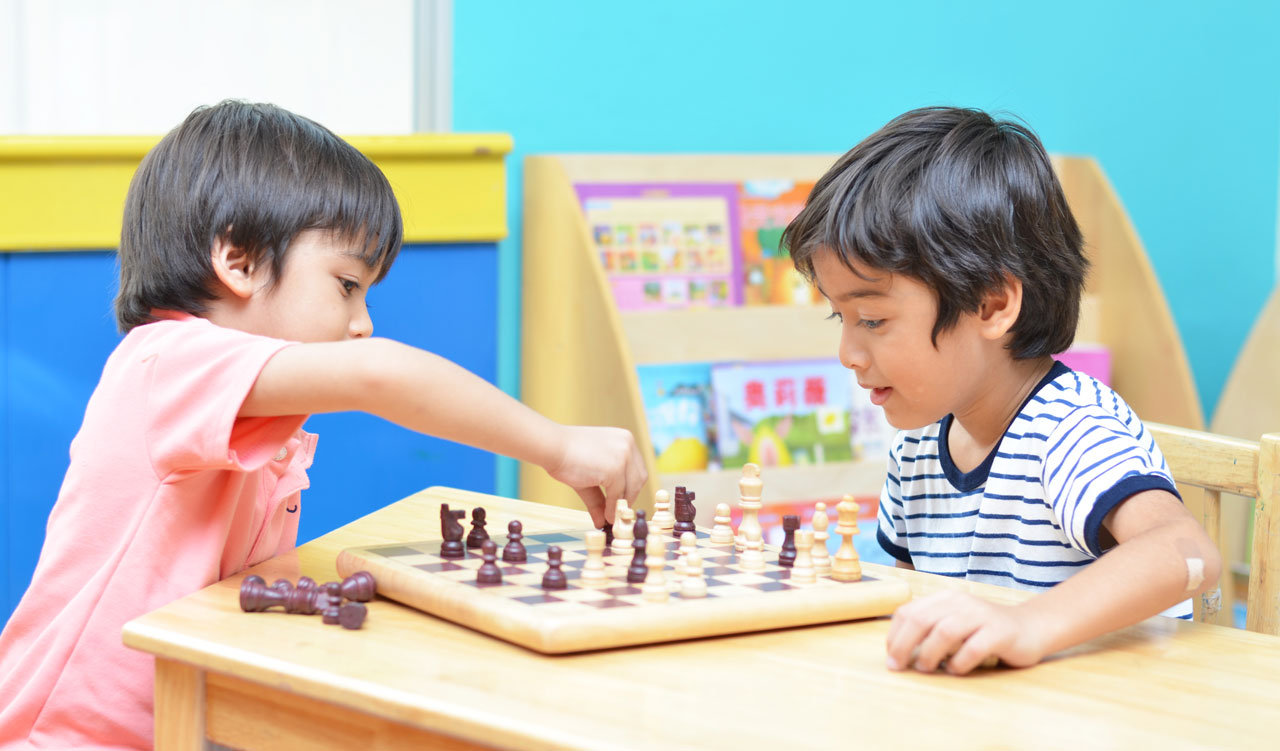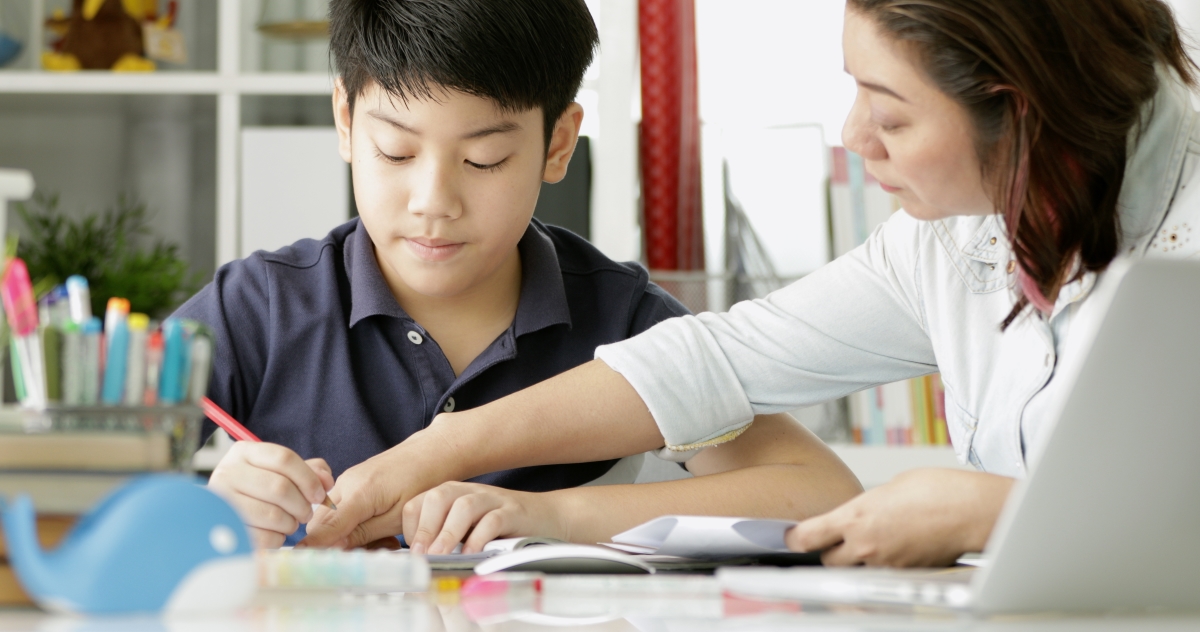By subscribing you are agreeing to our Privacy Policy
Top benefits of extracurricular activities - from international research

In Hong Kong's competitive society, most children participate in extracurricular activities after school. These activities are often touted as laying the foundation for the development of intelligence, personality, social behaviour and learning capacity, and as vital elements to ensure your child does not fall behind in their development. However, does recent research back up these claims about the positive effects of extracurricular participation for young children in Hong Kong?
Influenced by Confucianism, local Hong Kong children are encouraged to study at the expense of other activities, due to a belief that diligence and education facilitate upward social mobility. This is illustrated by the Chinese proverb “Diligence has its reward; play has no advantages” (qin you gong, xi wu yi). The desire to excel academically is reflected in the practice of at least 80% of middle school Chinese students that spend over eight hours each day at school, exceeding the time their parents spend at work[1].
Facing academic pressure and limited university places, children are often groomed for the right school at an early age which requires demonstrating a broad array of talents and activity participation. In market research conducted by Pure Profile in 2021 of 415 Hong Kong mothers (85% with children attending local schools and 15% with children attending international schools), all respondents confirmed their children were taking some form of after school activity typically amounting to two hours after school each day. For those with older children, the hours devoted to after school activities each week increased and the activities became more focused on exam preparation.
However, it is important to scrutinize whether parents are spending hard earned money wisely and whether children are really benefiting from their after school regimen. Afterall, there are also a considerable number of studies and articles that highlight resulting stressors for students including “over-scheduling,” “insufficient sleep,” and “little time for exercise”[2].
One recent study in Hong Kong involved sixty-four upper kindergarten students, their mothers and class teachers. The study examined the relationship between extracurricular participation and young children's school readiness and psychosocial outcomes[3]. The study found that children's extracurricular participation was positively associated with better school readiness and social competence, and indeed the positive effects were much more evident in households with lower parental involvement. For younger children, and particularly so for those in households with working parents, after school activities therefore do satisfy claims of increasing a younger child's school engagement, academic success and personal well-being.
But does this change for adolescents who in the face of intense academic pressure choose to only participate in a narrow range of academic extracurricular activities? A study of 3,328 grade 7 Hong Kong students assessed the relationship between participation in after school activities, personal well-being and family functioning[4]. The results suggested that adolescents who participated in structured extracurricular activities showed higher levels of social trust, self-esteem, life satisfaction, decision making skills, and lower levels of delinquent behaviors than those who did not participate.
The study acknowledged there is a gap in research in Hong Kong regarding the extent those benefits vary depending on the nature of extracurricular activities being undertaken. Certainly, there is noteworthy international research that suggests maintaining a broad array of extracurricular activities is more important than the intensity of those activities in predicting developmental success for secondary students[5]. Neurological studies also support these findings on the basis that certain non-academic activities lead to enhanced brain development which can translate into improved academic performance. For example, a recent large-scale study published In Frontiers in Neuroscience found that structured music lessons significantly enhance a child's cognitive abilities and these benefits transfer to other areas such as language-based reasoning, short-term memory, and lead to improved academic results[6]. Exposing children to a range of non-academic activities can also mitigate the risk of burnout and stress associated with the concentrated scheduling of academic tutoring[7].
Companies such as Bizibuz are now closely monitoring child development including examining the correlation between aptitude and skills in areas such as music, the arts and motor skills to understand the extent to which activities in these areas significantly contribute to cognitive development, social and emotional well-being, and longer term developmental success.
Below we examine in more detail the beneficial effects of after school activities as reflected in academic literature.
#1 GREATER ACADEMIC SUCCESS
Some parents are concerned that extracurricular activities reduce a child's available time for studying, thus negatively affecting their grades. However, research supports the contrary conclusion that diverse activities boost learning potential and contribute towards higher engagement levels.
Researchers Eccles and Barber (et al.), discovered evidence of extracurricular activities enhancing early childhood education, and their studies demonstrated that children who engaged in extracurricular activities skipped classes less and enjoyed school more[8]. They concluded that children who participate in activities with enthusiasm, are likely to enjoy improved cognitive abilities, concentration, and time management, all of which contribute to higher grades.
High endurance sports, for example, are known to teach concentration and resilience in the face of challenges. Bradley and Conway linked involvement in competitive sports to students being more conscientious, efficient, organized, and systematic[9]. So it is not difficult to imagine how this translates into an edge as it relates to studying and sitting examinations.
Perhaps Math and English lessons alone aren't always enough to keep kids interested, but the added pull of delivering a speech in the school play or running a relay race in a sport competition can act as a spark for young children's positive development.
Bradley and Conway also found that children who participated in fine arts extracurricular activities, such as dance or theatre, were 20% less likely to drop out of high school than non-participants. Additionally students who participated in athletics were 70% less likely to drop out of high school. The stats speak for themselves.
#2 GREATER CHARACTER GROWTH
When a child engages in various activities, they have the chance to explore a wide range of interests and discover passions a parent might be surprised to learn. Furthermore, broadening a child's hobbies broadens their perspective on life.
The more success a child encounters in activities they are passionate about, the greater their self-confidence becomes. Imagine your child has an enviable English vocabulary, and her teacher encourages her to participate in a debating contest. She joins the school team, learns how to structure an argument and public speak. Throughout the process, she realizes how much fun it is learning to improve her skills of persuasion for use at home on her parents (!), but also recognizes she has a natural aptitude which boosts her self-esteem and inspires a dream to become a barrister.
Working hard and learning new skills whether in an easygoing or competitive environment helps a child understand what success means without the stress of chasing a good grade.
Extracurricular activities have been linked to decreased anxiety and improved future social capability in younger children. Bradley and Conway also reported that students who participate in high-level, competitive sports have higher self-esteem, more pronounced self-concept, and as a result more social capital.
Similarly, the research of Eccles and Barber (et al.) found that extracurricular activities give youngsters an 'opportunity to build self-knowledge and an understanding of a child’s development, talents, values, and interests.'
According to the academic community, these advances provide the groundwork for identity discovery, an essential element of youth development.
#3 GREATER SOCIAL DEVELOPMENT
Truth to be told, meeting friends may seem difficult to most, but one of the simplest ways to do it is through extracurricular activities. Each extracurricular activity a child participates in gives them another occasion to broaden their social network and develop skills that are critical for longer term career development.
Moreover, if they meet friends through extracurricular activities, they are more inclined to get more involved. For instance, if a child makes friends while performing community service at school, they might decide to form a volunteer group and make a significant contribution to their community. The possibilities of meeting people with similar interests and developing social interactions are endless.
Like all human beings, students and young children constantly search for a greater sense of belonging. Group activities promote teamwork and communication skills, both required for success in the workplace and in other future ventures.
According to Fredricks[10], participation in extracurricular activities enables children to form relationships with supportive adults in addition to peer interactions. For children who do not have adult support and supervision, having adult mentors is an impactful way to reduce the likelihood of maladjusted behaviours.
KEY TAKEAWAY!
Parents need to carefully consider how they define success in terms of developmental objectives for their child. If it means raising a well-adjusted, confident, happy, self-aware child with the skills to translate school grades into a successful career, the thoughtful selection of extracurricular activities can be a powerful advantage to gift to a child.
Bizibuz is seeking to reshape the conversation around after school activities by arming parents with the data they need to make more informed decisions that can maximize the beneficial impact of after school activities. WeThey believe the holistic development of the child fosters their ability to excel in the face of the demands and challenges of everyday life, from short-term academic pressures to a longer term legacy.
OurBizibuz's KnowYourChildTM tools are a set of benchmarking tools that assess a child's development across a broad spectrum of proficiencies and skills for pre-primary (3-6 year olds) and primary children (6-12 year olds). KnowYourChildTM tools have been developed using advanced algorithms and input from top universities including the Education University of Hong Kong and Polytechnic University and senior teachers from leading institutions including the Chinese International School and Canadian International School. Parents receive a detailed report on their child identifying areas where intervention is needed, providing smart activity recommendations to improve broad-based performance and measuring the efficacy of activities over time.
Extracurricular activities aren't just extras. They are an opportunity for a parent to contribute to a brighter future for their child. Bizibuz is seeking to empower parents to use data and insights to support their efforts at making the right decisions to make every penny count in optimizing their child's development.
-----------------------------------------------
References:
[1] China Youth and Children Research Center. Recreational and Leisure Time Activities Among Young Chinese People. Beijing: China Youth and Children Research Center (2008).
[2] China Youth and Children Research Center. Living Habits of Children and Adolescents in Large Chinese Cities. Beijing: China Youth and Children Research Center (2009). Ren, Lixin & Chen, Jianbao & Li, Xuan & Wu, Huiping & Fan, Jieqiong & Li, Lin. (2020). Extracurricular Activities and Chinese Children’s School Readiness: Who Benefits More?. Child Development. 92. 10.1111/cdev.13456.
[3] Chung Yeung Chiu, Eva Yi Hung Lau, Extracurricular participation and young children's outcomes in Hong Kong: Maternal involvement as a moderator, Children and Youth Services Review, Volume 88, 2018, Pages 476-485, ISSN 0190-7409, https://doi.org/10.1016/j.childyouth.2018.03.051.
[4] Ma CMS and Shek DTL (2014) Prevalence and psychosocial correlates of after-school activities among Chinese adolescents in Hong Kong, Public Health 2:159. doi: 10.3389/fpubh.2014.00159.
[5] Busseri MA, Rose-Krasnor L, Willoughby T, Chalmers H. A longitudinal examination of breadth and intensity of youth activity involvement and successful development. Dev Psychol (2006) 42:1313–26. doi:10.1037/0012-1649. 42.6.1313
[6] Artur C. Jaschke, Henkjan Honing, Erik J. A. Scherder. Longitudinal Analysis of Music Education on Executive Functions in Primary School Children. Frontiers in Neuroscience, 2018; 12 DOI: 10.3389/fnins.2018.00103.
[7] Wang, Yuke. Tuition mills rake in billions while children suffer. China Daily (30 July, 2018) https://www.chinadailyhk.com/articles/56/36/12/1532920484473.html
[8] Eccles JS, Barber BL, Stone M, Hunt J. Extracurricular activities and adolescent development. J Soc Issues (2003) 59:865–89. doi:10.1046/j.0022-4537.2003. 00095.
[9] Bradley, J. L., & Conway, P. F. (2016). A dual step transfer model: Sport and non-sport extracurricular activities and the enhancement of academic achievement. British Educational Research Journal, 42(4), 703-728.
[10] Fredricks, Jennifer. (2011). Extracurricular Participation and Academic Outcomes: Testing the Over-Scheduling Hypothesis. Journal of youth and adolescence. 41. 295-306. 10.1007/s10964-011-9704-0.



